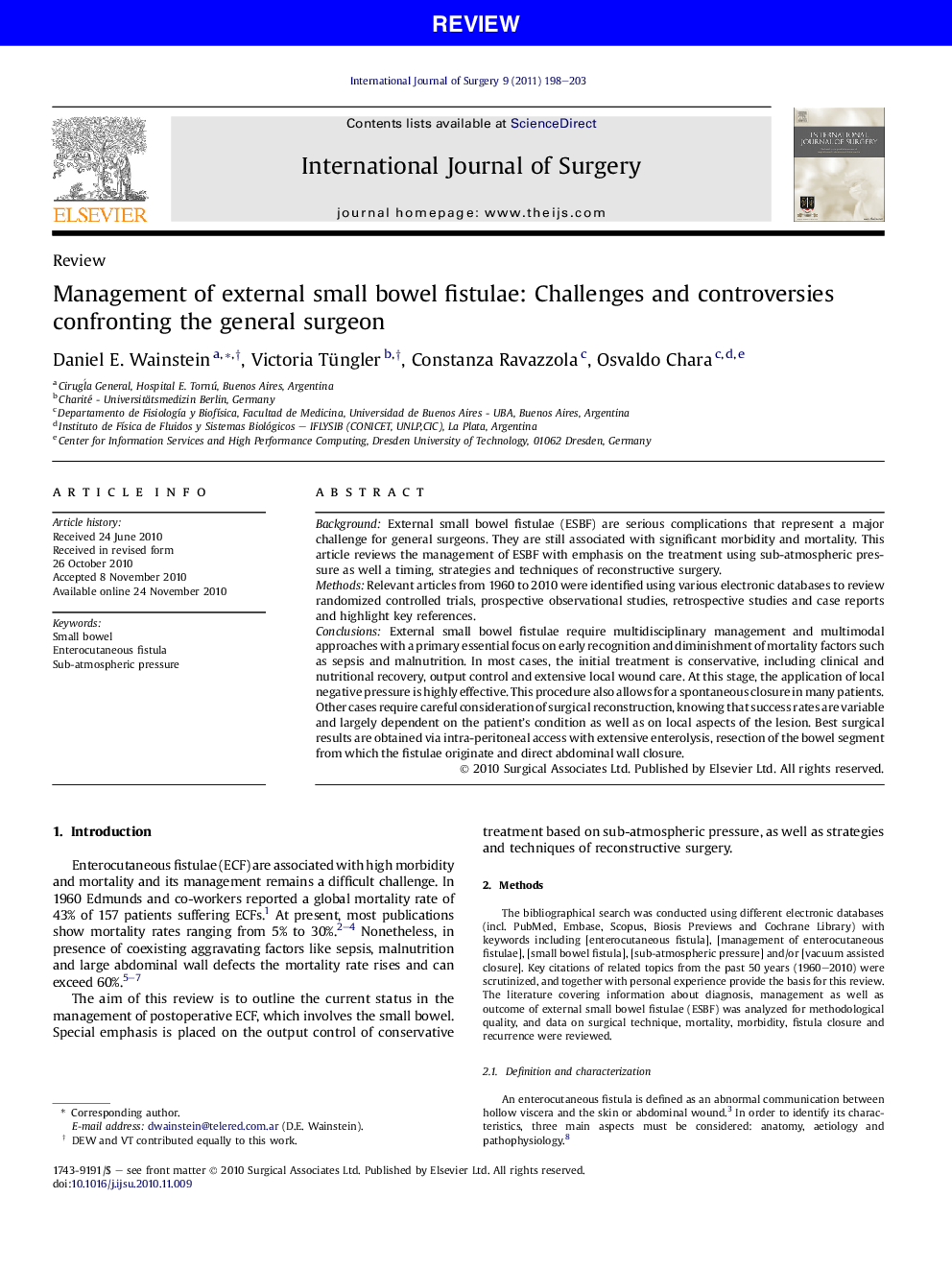| Article ID | Journal | Published Year | Pages | File Type |
|---|---|---|---|---|
| 4287000 | International Journal of Surgery | 2011 | 6 Pages |
BackgroundExternal small bowel fistulae (ESBF) are serious complications that represent a major challenge for general surgeons. They are still associated with significant morbidity and mortality. This article reviews the management of ESBF with emphasis on the treatment using sub-atmospheric pressure as well a timing, strategies and techniques of reconstructive surgery.MethodsRelevant articles from 1960 to 2010 were identified using various electronic databases to review randomized controlled trials, prospective observational studies, retrospective studies and case reports and highlight key references.ConclusionsExternal small bowel fistulae require multidisciplinary management and multimodal approaches with a primary essential focus on early recognition and diminishment of mortality factors such as sepsis and malnutrition. In most cases, the initial treatment is conservative, including clinical and nutritional recovery, output control and extensive local wound care. At this stage, the application of local negative pressure is highly effective. This procedure also allows for a spontaneous closure in many patients. Other cases require careful consideration of surgical reconstruction, knowing that success rates are variable and largely dependent on the patient’s condition as well as on local aspects of the lesion. Best surgical results are obtained via intra-peritoneal access with extensive enterolysis, resection of the bowel segment from which the fistulae originate and direct abdominal wall closure.
